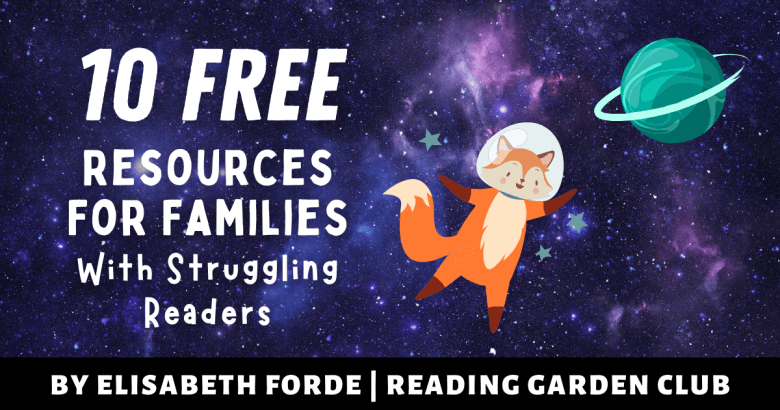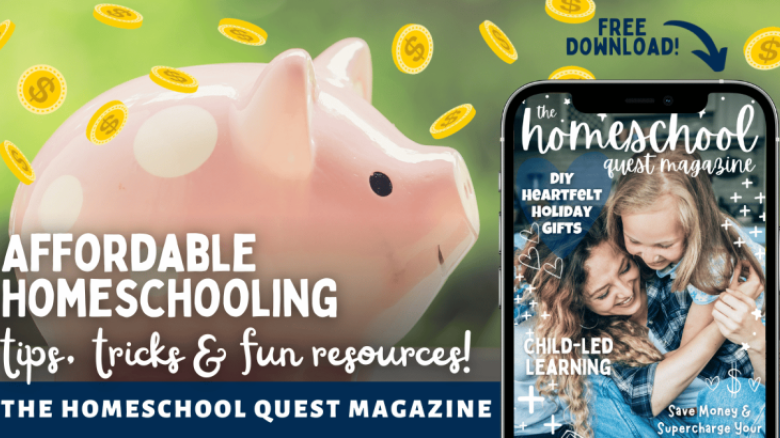Dear Homeschool Parents,
Your child may not be an eager reader. Whether your reader is struggling, reluctant, or possibly has a reading or language-based disability, the 10 FREE tools in this article will help you engage and instruct your reader.
After working for more than ten years as a Dyslexia tutor for children and adults, I am amazed at the many online tools and resources available for families now. Parents can easily get trained on how to teach a struggling reader through structured literacy.
Structured literacy is a systematic approach to teaching early readers that ensures a reader demonstrates mastery of skills before advancing. No matter what resources you use, please ensure you start with understanding structured literacy is how all children can be taught to read.
I am here to help. If you want more support teaching a struggling reader, you can also get instructional coaching, tutoring, and free printable resources from a homeschool mom + dyslexia tutor. Reach out if you cannot find a resource to meet your struggling reader where they are.
Parent Training
For most struggling readers, it is the lack of training of their instructors that leads to struggling readers being asked to read whole words (also known commonly as sight words) without being given instruction on how to decode words. Structured literacy is the answer to supporting a reader that has not been able to learn to read via sight words instruction.
1. Parents should start at ReadingRockets.org. This extensive website has instructional videos and free self-paced training on what effective structured literacy instruction looks like. Your child may only struggle in some areas of reading and not others, having a deeper understanding of how children learn to read will help you identify where your child is struggling and exactly how to help them.
2. The UFLI Parent Hub links many free literacy resources. All of their instructional resources are free for anyone to download and print. This makes this one of the top intervention tools for anyone supporting a struggling reader’s instruction.
3. The Cox Campus video courses for educators are focused on structured literacy and homeschool parents should take the free training.
4. Podcasts are a great way for busy families to get up-to-date on how they can support their struggling or emerging reader. I want to highlight podcasts for kids that have approached how to teach a child about reading and brain development.
5. But Why? is a podcast for kids that has tackled explaining how brains learn to read in a kid-friendly way.
6. Brains On! is another podcast for kids with an episode from the perspective of a young person that struggled with reading for years. This episode explains why learning to read can be so hard.
Instructional Resources
1. The Institute for Multi-sensory Education or IMSE has a free resource bank designed for teachers in school, but anyone can access the many phonics-based printables. Don’t forget to use their search bar to explore the massive printable library that supports the “Orton-Gillingham method” of structured literacy.
2. Phonicsandstuff.com has free phonics games and decodables, which are books early and struggling readers use to improve reading skills. I really value the teaching tools on this site, including the ability to create word lists based on different sounds or syllable patterns you have taught your struggling reader. There are other free phonics-based word list generator sites like phonicswordlist.com.
3. Morphology is one instructional approach to teaching older struggling readers. Morphology is the internal structure of a word and the related meaning. Prefixes, roots, and suffixes are examples of meaningful units of language that can be combined to form multiple and different words.
These concepts are taught in Typingclub.com’s morphology Vocabulary and Spelling courses. The online courses are available in 6 different levels for 3rd-8th graders with or without typing skills.
The courses focus on building vocabulary through examining morphology and spelling. There are separate formal typing courses designed for different age levels and even different languages! It’s free, but also available via paid subscription.
4. Carla Siravo is a former elementary teacher who adapted popular songs into teaching tools for readers with her husband during the pandemic. Mrs. Siravo’s Youtube channel has so many fun and catchy versions of popular songs that teach early reading concepts like the differences between closed and open syllables. I love this resource! She is also the creator behind many of the newest freebies at IMSE.
5. The Really Great Reading assessment surveys are quick surveys for families to determine where the gaps in reading truly are. Most struggling readers are not struggling with all the subskills it takes to be an effective reader. Use these free assessments to isolate your reader’s needs.
Libraries
Explore your local public library’s digital resources and physical resources. Libraries can offer audiobooks, books on cd, decodables, graphic novels, and so much more.Talk directly with your children’s librarian about what resources they have available for engaging struggling or reluctant readers. You can even advocate for your local library to carry decodables if they do not already.
1. Tumblebooks is an online ebook reader that reads aloud and even animates books for reluctant or struggling readers. This popular subscription-based website is often offered free via your local library. The website highlights text as the books are read aloud
2. Books about children that struggle to read can help your struggling reader feel seen. Check out a short list I have compiled here to read aloud to a struggling reader or read with them.
- Adeline Visits the Library
- Aaron Slater, Illustrator
- The Alphabet War
- Thank You, Mr. Falker
- Brilliant Bea
- A Walk in the Words
- Knees: The Mixed Up World of a Boy with Dyslexia, and
- Fish in a Tree
Your Reading Teacher,
Elisabeth Forde, M.Ed.
Homeschool Mom & Dyslexia Tutor
Read More!
- Log in to post comments

